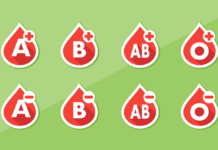Last Updated on December 19, 2020
© pexels
We have all been in situations where we’ve lost control completely and desperately. Such situations require a remarkable amount of emotional strength, which we manage to gather at times, while we tend to feel rather defeated most of the time.
Even having to be strong can be quite stressful. In fact, in a study that was conducted on emotional exhaustion in nurses, who often have to deal with situations of demand, control, and extreme fatigue, researchers discovered some really interesting information on the meaning of this specific type of exhaustion. Hence, we decided to go through the most important things everyone should know about dealing with emotional burnout, so make sure to keep reading until the end of the article to learn how you can cope with and prevent emotional burnout!
1. A simple explanation of what is emotional exhaustion
Being emotionally exhausted comes from feeling overloaded or getting overwhelmed. And unlike what many people think, overworking is not the only cause of emotional exhaustion, which is also called burnout syndrome. Emotional exhaustion happens in a variety of situations, such as in a relationship, during parenting, or in jobs where there’s life at stake. Nurses, for example, tend to take on more responsibility than they can handle and often have to deal with an overload of emotions, which manifests as physical tiredness and a heavy feeling of lack of control over life. Let’s take a further look into the study on emotional exhaustion in nurses that we’ve mentioned earlier.
2. Here’s what the study found
The study was conducted on 96 nurses from the ER and ICU by a team of researchers from the University of Barcelona, led by Dr. Jordi Fernandez-Castro. The team analyzed the way nurses perceived rewards, effort, control, and demands, as well as, measured how the nurses’ perception changed depending on the task at hand. To figure out whether these elements were associated with emotional exhaustion, the researchers used an app that was specifically designed for this purpose; every nurse had to answer four questions linked to reward, effort, control, and demand while doing their tasks. By the end of the study, it was found that fatigue decreased with reward, but when demand was more important, the level of emotional exhaustion always increased accordingly. In other words, the importance of a task and what the task performer gets out of it can both affect workplace fatigue tremendously.

































